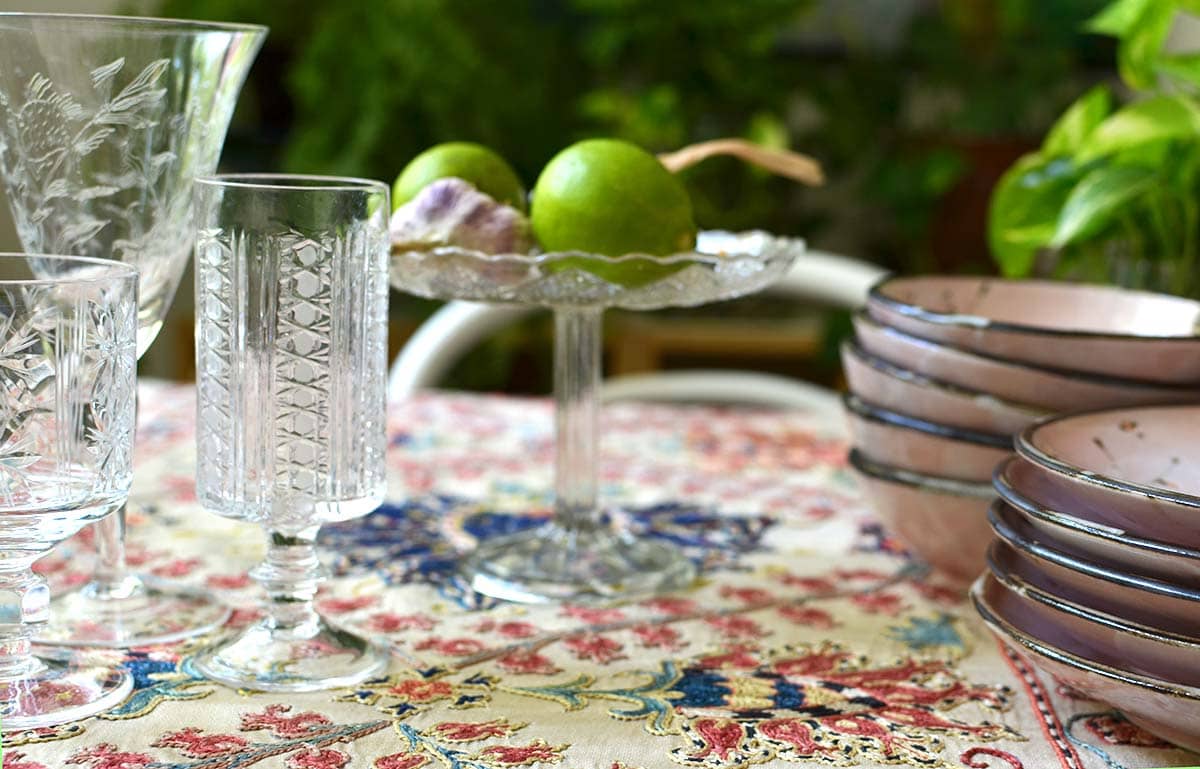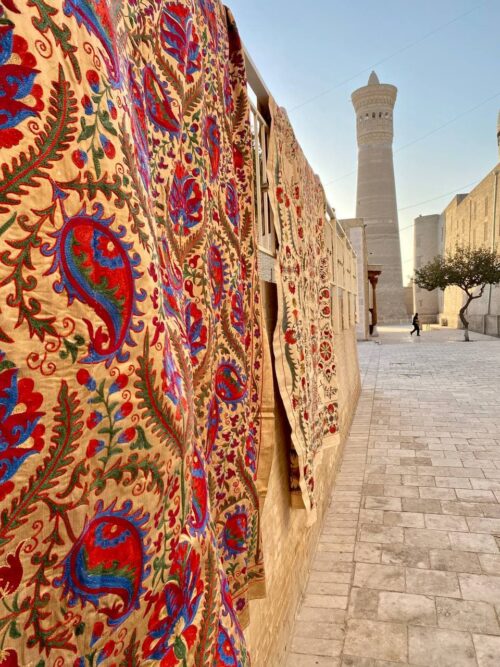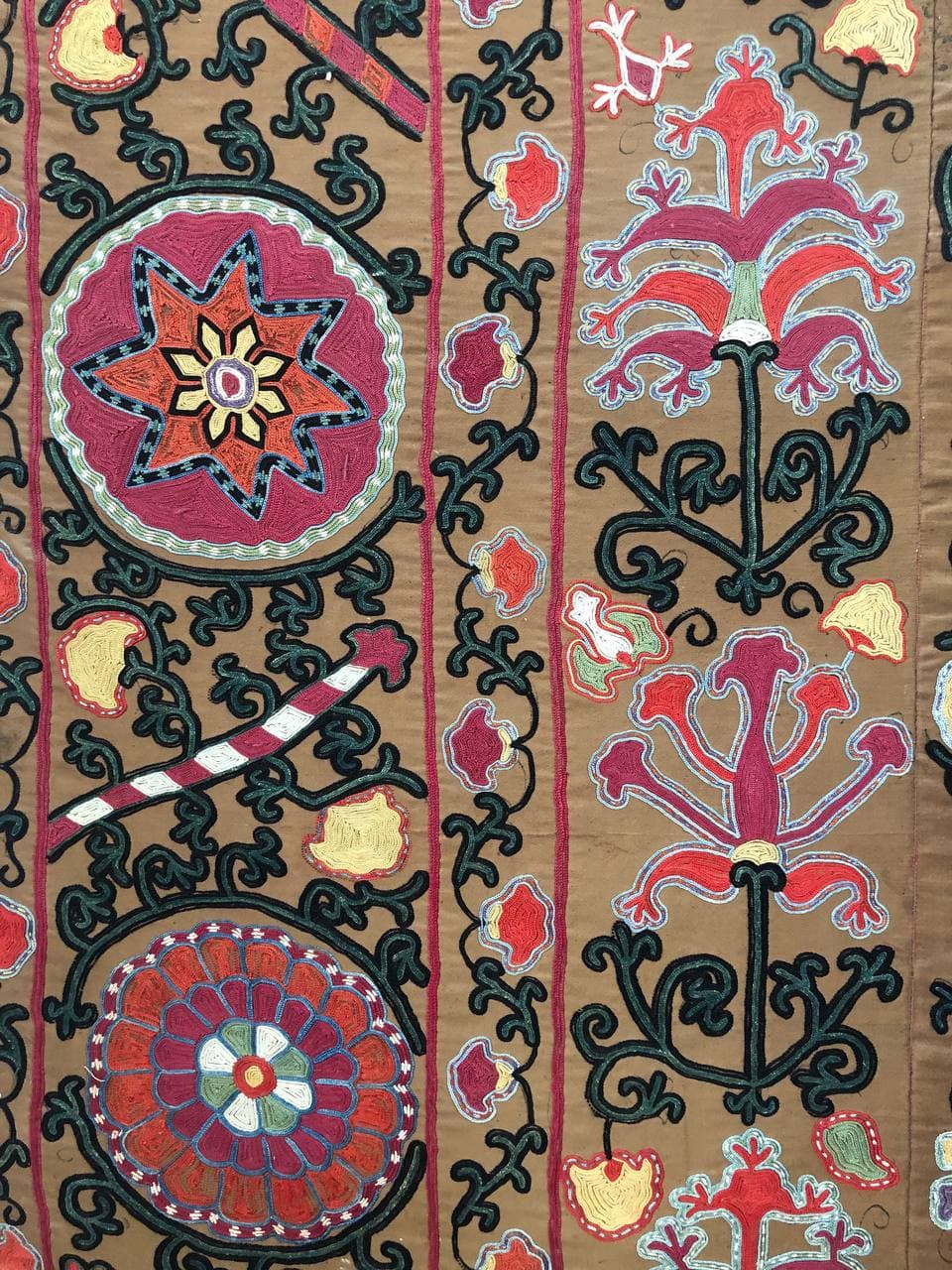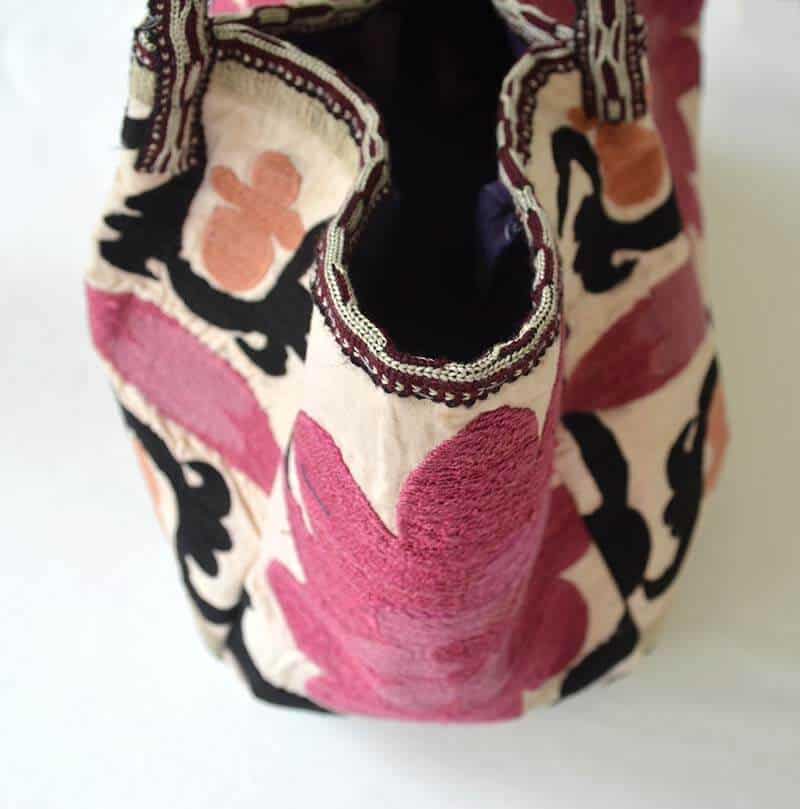
A few days ago we added to our limited bags collection two new suzani bags, which deserve a post of their own – that’s how gorgeous they are!
In interior decoration suzani embroidery finds its use in every day textiles like cushions, bedspreads, teapot covers and wall hangings. Larger pieces of embroidery (e.g. wall hangings) occasionally get damaged here or there. These damaged parts of the suzani are removed while the rest of the suzani goes on to live as something new. This new product could be a smaller wall hanging, a suzani pillow cover or it could be suzani bags like the ones we recently added to our collection.
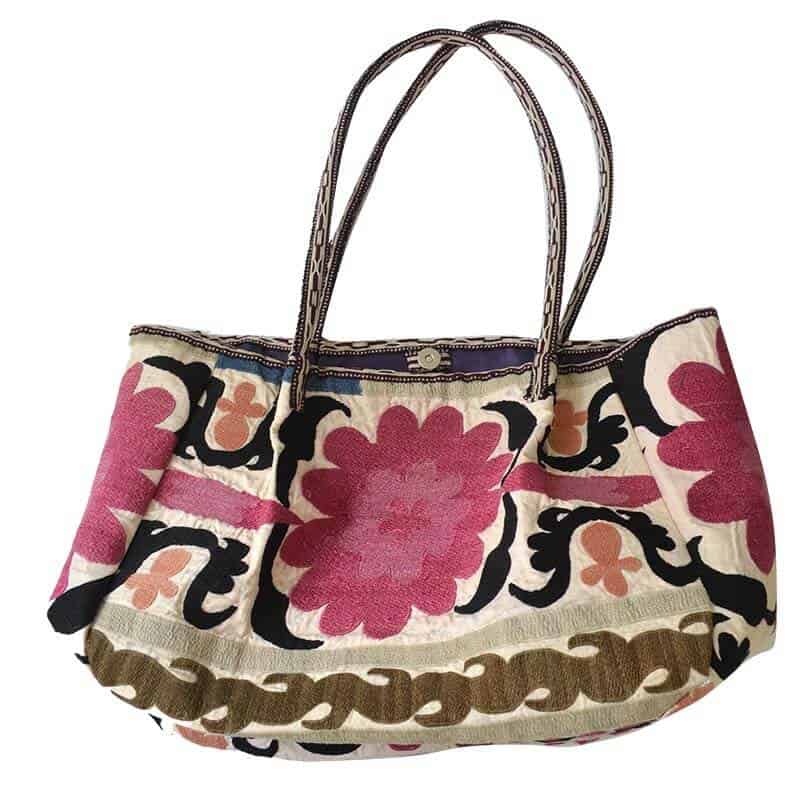
Ethnic suzani bags. Who are they for?
Obviously for those who appreciate unique accessories with a rich cultural heritage. These are one-of-a kind items for people who value one–of-a-kind things. These bags are a connection to women who pour the light of their souls into these embroidery products, which go traveling the world around mesmerizing anyone who gets to see them.
Base fabric of suzani
Base fabric of suzani is usually a solid handwoven silk and cotton fabric similar to our solid adras fabrics. Uzbek handwoven fabrics are usually about 40-50 cm wide. For a bigger suzani piece like a wall hanging or a bedspread, several widths of the fabric are put together before a pattern is drawn with a pen on the combined fabric. Once the pattern is on the combined fabric, the pieces of the combined fabric are detached and distributed among several embroiderers. Each embroiderer works on her piece. Once all pieces are embroidered they are combined once again this time to come together as a final suzani product.
Suzani embroidery threads
Embroidery threads are silk threads. These threads are made locally in Uzbekistan. For each suzani product the threads are hand dyed with sometimes natural, sometimes synthetic, sometimes a combination of both natural and synthetic dyes.
Before starting the embroidery it is critical to dye enough or even an extra reserve of threads. Why is it so important?
Imagine there are several embroiderers working on a bedspread for a king size bed and they run out of yellow silk threads while the work is only 80% complete. To dye silk threads in exactly the same yellow hue is not always possible due to an inherent process of manual dying – it is human to err and to be inconsistent. The shade of new yellow will be slightly different from the original yellow color and this inconsistency of colors will be obvious in a suzani.
Handmade Jiyak handles
Jiyak is a handmade trim made in Uzbekistan and widely used in both fashion and interior decoration. We widely use jiyak trims for our pillow cover. In case of these suzani bags jiyak trims adorn the handles and the edge of the suzani as you can see in the image below.
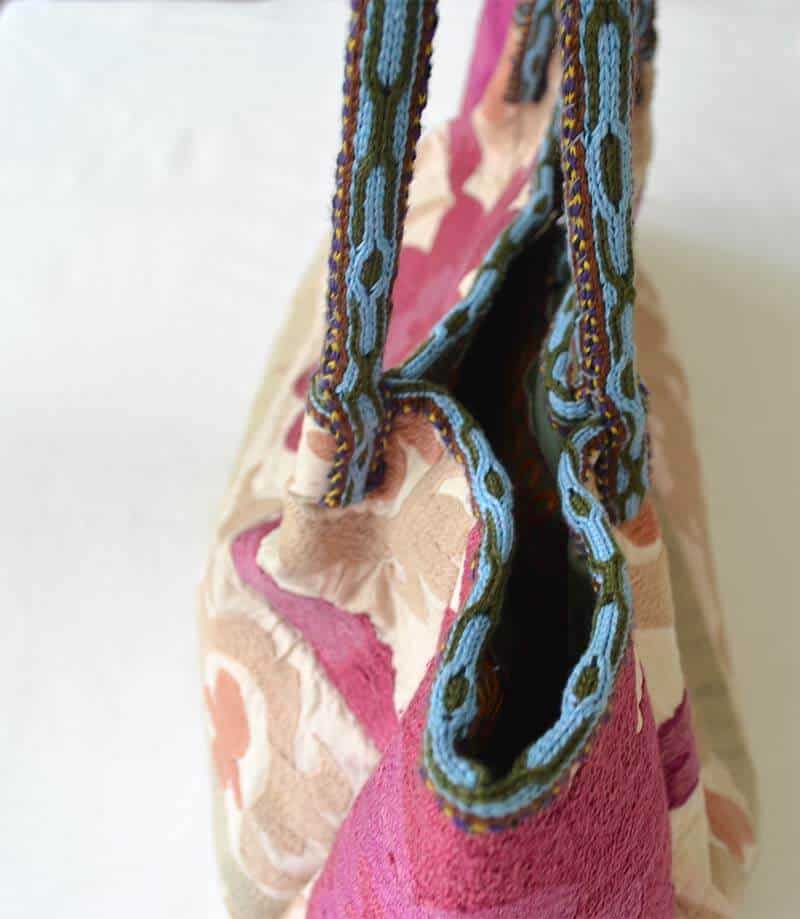
How big are these suzani bags?
You can see exact dimensions in product descriptions. Here we would like to speak the language of practicality:
- Reversible beige and pink bag is ideal for an everyday bag. It will be a great bag to fit your wallet, cellphone, a cosmetics pouch, a book, even an ipad.
- Large suzani bag is for tall people and can fit everything a small suzani bag can carry + a wool scarf or even a laptop.
Pistachio green reverse side of a reversible suzani bag
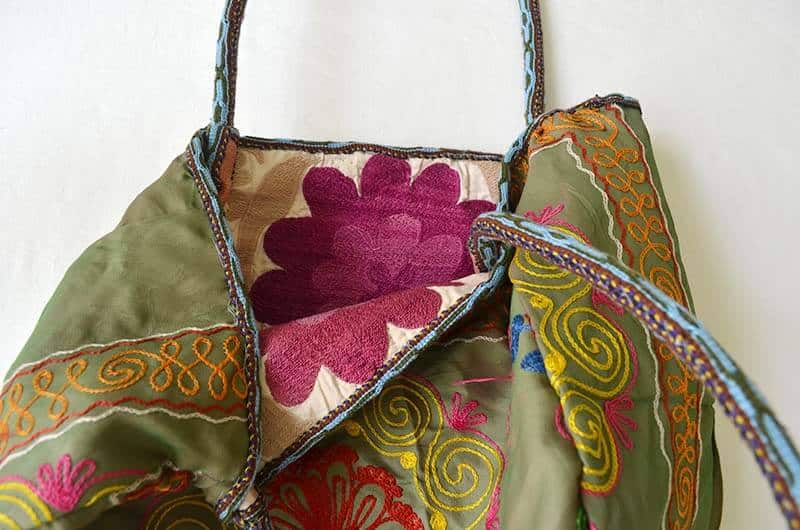
There is something incredibly special about a reversible suzani bag – that’s the reverse side of the bag or a lining.
First of all, it is a beautiful pistachio/olive green color of a base fabric. We find it to be very rich and noble.
Secondly, the embroidery itself. It is a machine embroidery but nevertheless it is stunning.
Why would anyone use such an embroidered textile for a reverse side of the bag? Same reasons why anyone would cut a suzani and turn it into a bag – Upcycling!
Caring for Uzbek suzani bags
If anyone ever tells you that suzani is safely washable and after washing it will be in the same shape and colors as before, ask them to wash the suzani in front of you. Simple as that! We have yet to see a suzani that came out of hand washing without colors bleeding and the suzani losing its shape. Advice for caring for suzani – treat it with care and love and dry clean it.
A word on sustainability…
Suzani are 100% local product because of the following:
- local base fabric – usually cotton or cotton / silk blend – Uzbekistan grows it own cotton and cultivates it own silk;
- locally made silk threads;
- local artisans who designed a suzani pattern;
- and golden hands of Uzbek suzani embroiderers who made that pattern come to life.
These steps show you that you are buying a fully sustainable locally made product. In production, there is no dependence on any other economy other than our own.
Limited edition
There will be no more of these suzani bags – we are in the realm of one of a kind limited edition products. If available buy now.

